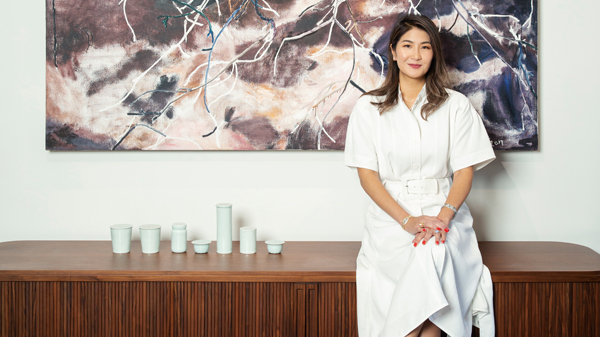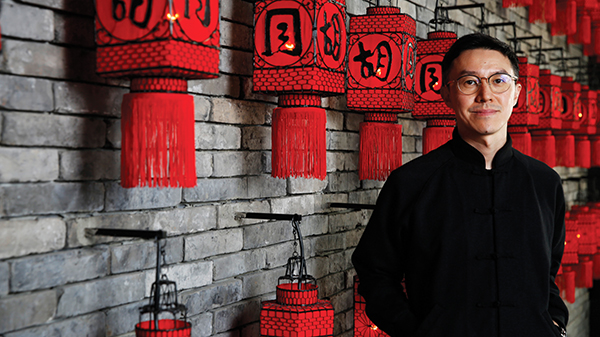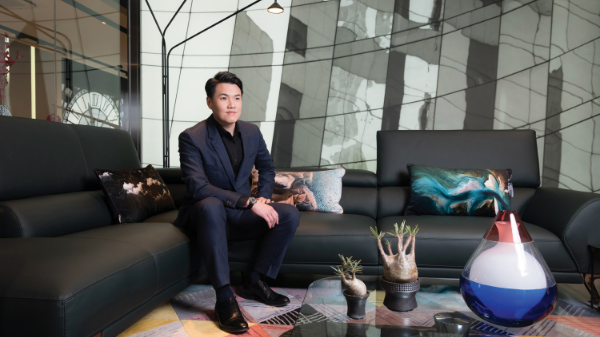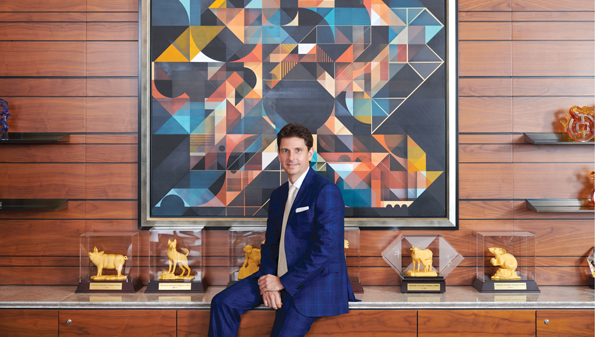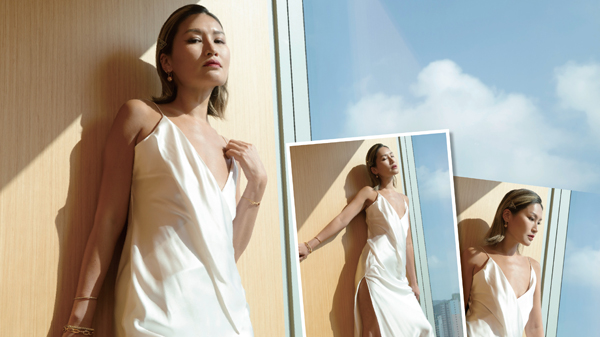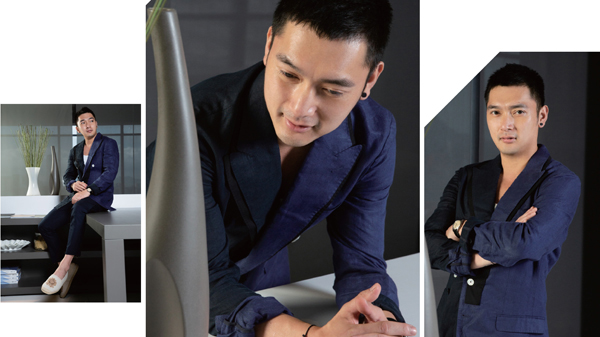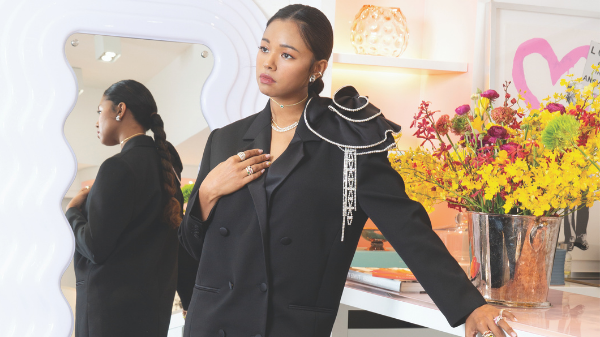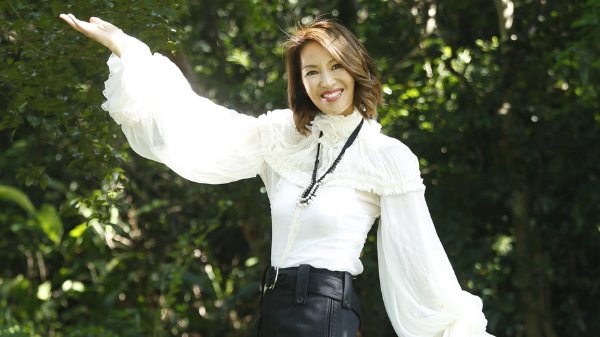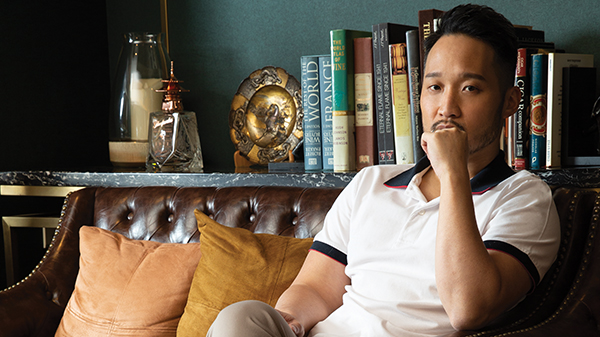Looking to deepen a love and appreciation of art, Christine Chan Chiu’s AARRTT-istic platform is a game changer for Hong Kong culture…

You co-founded AARRTT. Can you briefly describe the concept behind it?
It was founded first and foremost to present one unified platform to have a curated selection of pre-filtered events and happenings in Hong Kong, within the region and beyond. So to find art, you wouldn’t need to click on like 10 different websites or google what’s happening or where the next biennale is taking place.
What led you to your love of art?
I was definitely influenced by my mother. She’s very artistic and creative. She was a docent for museums in Hong Kong. When we went on family holidays she would take me and my siblings to see art. As I got older, I had the opportunity to study other subjects but somehow I started taking art-history courses at my college.
I’m a very visual person and I love history as well, so it seemed to be the perfect fit. I also enjoy how art movements influence social and economic developments within a society. Art changes, it chronicles and records how we as humans react to those changes on both a personal and collective level.
“Art changes and chronicles changes – and records how humans react to those changes both on a personal and collective level”
Could you tell us what was the thinking behind the name AARRTT?
There’s an interesting anecdote behind that. When my business partner Krystyna Winckler and I got together, it was because of our love of art. And we wanted to pick a name that would reflect that. Coming up with the name was quite easy as we mirrored each other, both in our vision for the company as well as our values, upbringing, our kids, our family and even our name – although she’s French and I’m Chinese.
We have pillars. The first being ‘What to See’. We also have a city art guide that breaks the locations down into different districts and tells people where to go for gallery hopping or where to see the next best art shows. And finally we have an educational section, which is ‘What to Know’. Where we present topics we think are trending at the moment – from Chinese diaspora art to street art in Hong Kong, to how to build a collection. We hope that AARRTT platform will be a link to foster cultural exchange between Europe and Asia, as well as the rest of the world.

What’s your take on the newly launched M+ Museum?
It’s fantastic. The whole team has done an amazing job and it does Hong Kong proud. Doryun Chong, the chief curator, has done a terrific job of presenting such a diverse range of thematic exhibitions. We’ve all been waiting so long to see the Sigg Collections, from Revolution to Globalisation. I don’t think any of us have seen such a large collection of Chinese art before. It’s quite phenomenal and had to be curated in such a way that it provides the artworks with context and is understood within the history of China at that time.

You source NFT artworks for Q9 Capital and exhibit them at the Q9 Hub space. For someone new to digital art, can you elaborate a little on what this involves?
It’s been quite a steep learning curve for me as well, having to learn about NFTs. What is involved at the Q9 Hub is to forge partnerships with market places, art fairs, as well as art platforms. It’s also involved learning about blockchain and the metaverse and what digital art really is.
For any beginner to any sort of art, including NFTs, the first thing you have to do is to do your research, your due diligence, to find out exactly what sort of digital art you want to collect. Also, because with NFTs, there so many different kinds. If you’re looking for NFT art, that’s very different from looking for NFTs with utility in the metaverse. And that too is very different from looking for PFPs (profile photos), the avatars that a lot of people have – such as profile photos on WhatsApp and Facebook. Those all have very different functions and purposes from each other. So before you buy an NFT, you should think carefully about what type you want to collect.
“For any beginner new to NFTs, the first thing is to do your due diligence. To find out exactly what sort of digital art you want to collect”
You were Vice-chair of Fundraising for Operation Smile Greater China for five years, as well as the Sheen Hok Charitable Foundation. What did that entail?
Both charities provide medical attention and support to the underprivileged and those in need. Op-Smile was specifically for those born with facial deformities such as cleft lips and palates. I am very lucky to have friends in the art world who are willing to donate artworks for the annual fundraiser. Last year, we had a Xu Hongfei sculpture that was donated by an anonymous donor that was auctioned for more than twice its original estimate.

You have a BA in History in French Literature. Who are your favourite writers (especially French) and why?
The first writer that comes to mind is Baudelaire because his works are romantic and melancholic, and his use of language evokes a lot of nostalgia and longing. Then, I also thought of (Albert) Camus. The way he captures that nonchalance and malaise so well.
The other author I thought of is Gertrude Stein. Even though she’s not French, she lived in France for a long time. She was such a trailblazer, and also a collector. What I loved most, is that in her work, she also talks about her experiences living in pre-second-world-war Paris and meeting all those great artists, like Matisse. Her home was the kind of a salon where everyone gathered.
If you could go back in time and meet anyone from the past, who would it be?
That’s a no brainer – Eleanor d’Aquitane. I’m a history buff and she lived in the Middle Ages, which to me was a fascinating period in history. She was a queen but she lived among enemies who wanted to kill her and her husband imprisoned her. She had two marriages, 10 or 12 kids, and even Richard the Lionheart was her son. She also took part in the Crusades. She was truly formidable – really resilient and intelligent.

What was the last music you downloaded/listened to?
Eroica, Beethoven’s Symphony no. 3.
What’s the biggest challenge to lifting art appreciation in Hong Kong?
I believe it’s getting people to stop and look – to make time for art. Hong Kong is such a busy city, people are always in a rush. The city does have some very good public art, whether it be local or international artists, but most people don’t realise this. Education is key to lifting art appreciation, be it through schools, public talks or community events.
What do you always keep in your fridge?
Hummous, comté cheese and Chardonnay.
What three words best describe you?
Optimistic. Extroverted. Adventurous.
Thank you.
(Venue: Ora-Ora and Touch Gallery; Photographer: Jack Law; Art Direction and Styling: Jhoshwa Ledesma; Videographer: Jackie Chan Hair & makeup: Heti Tsang)



